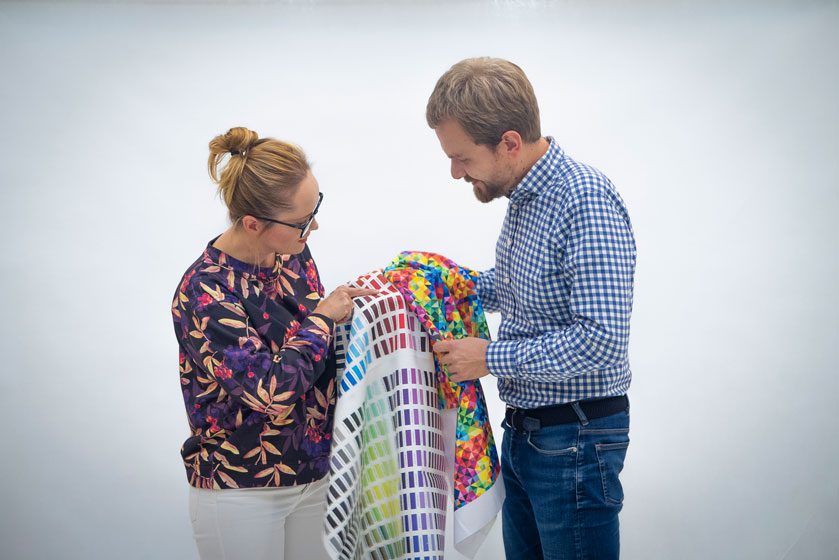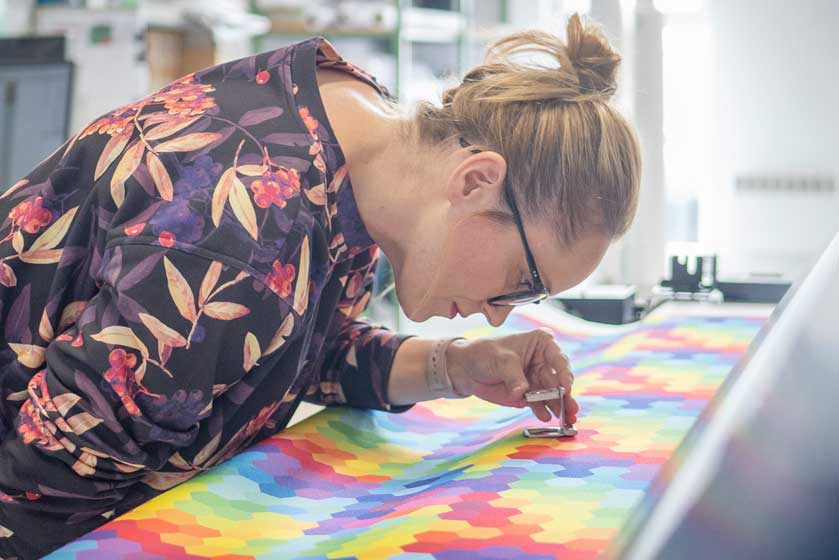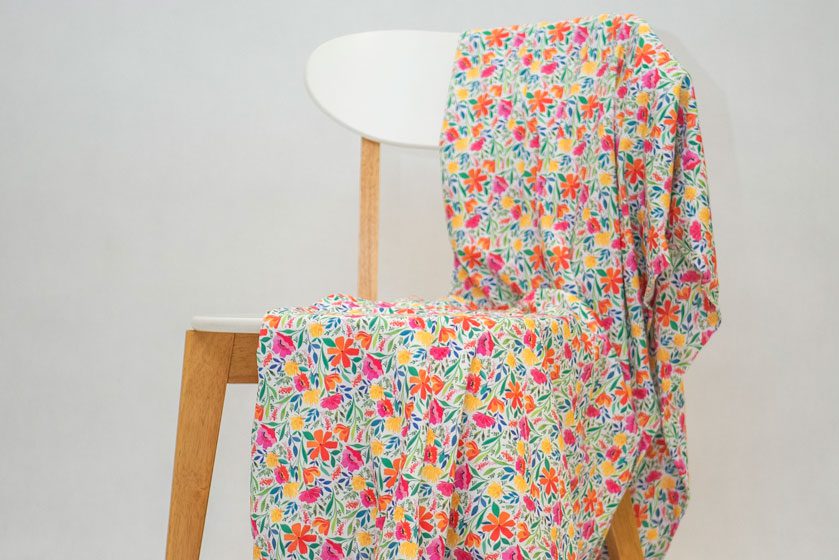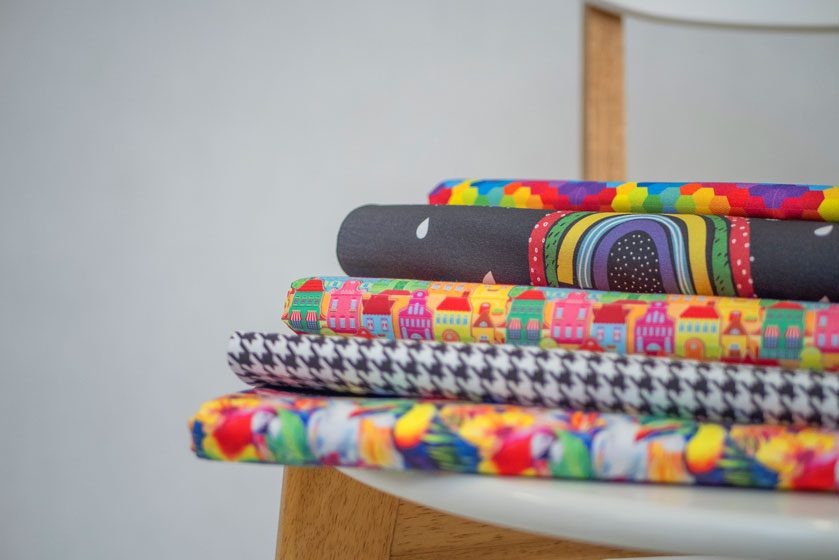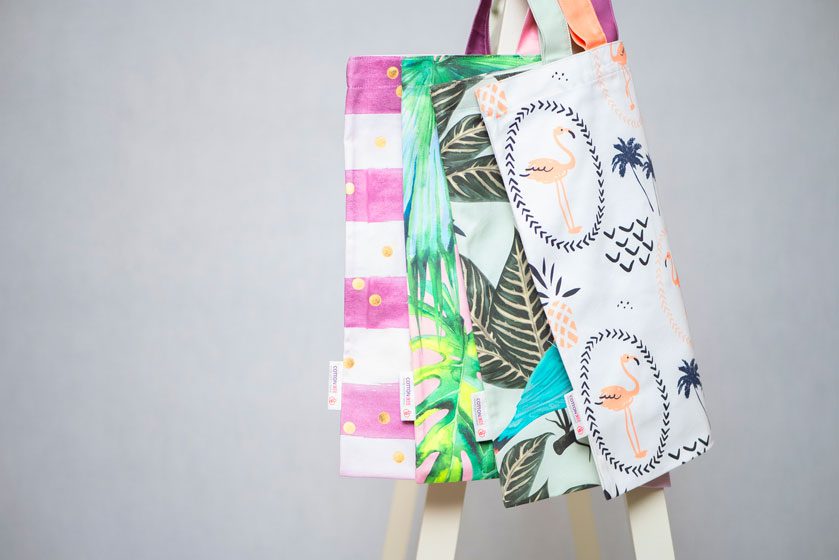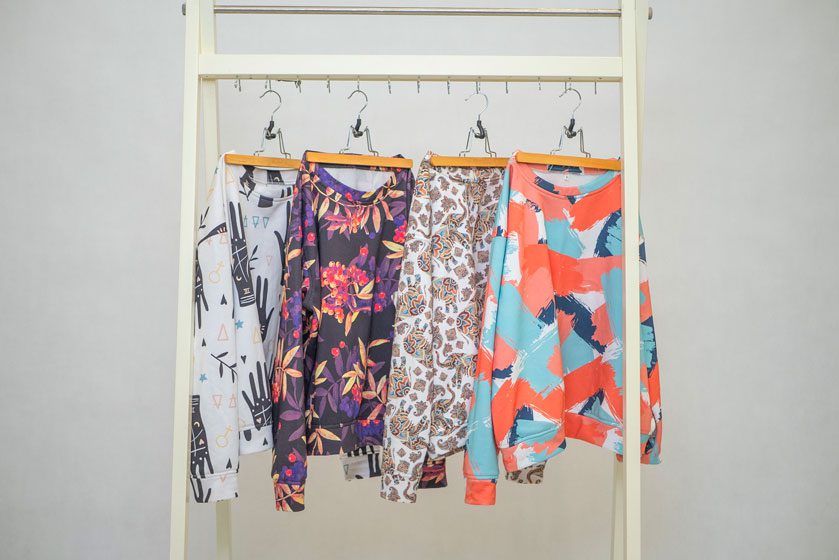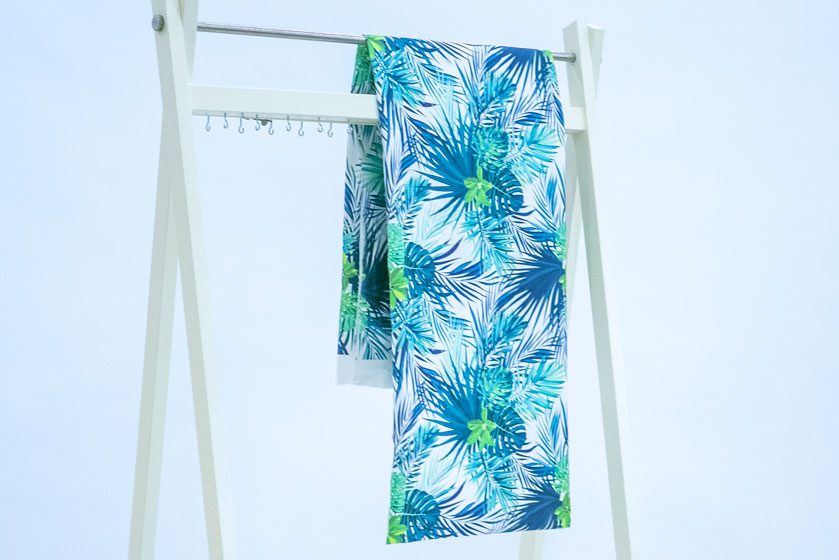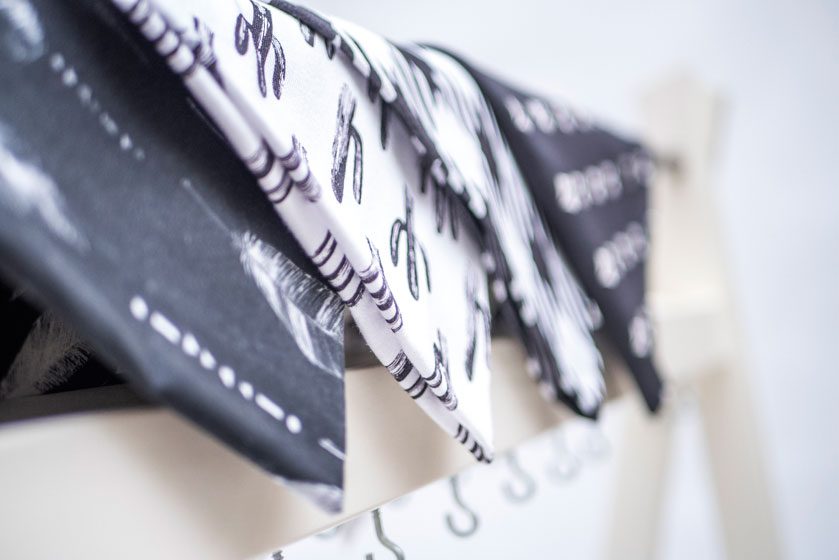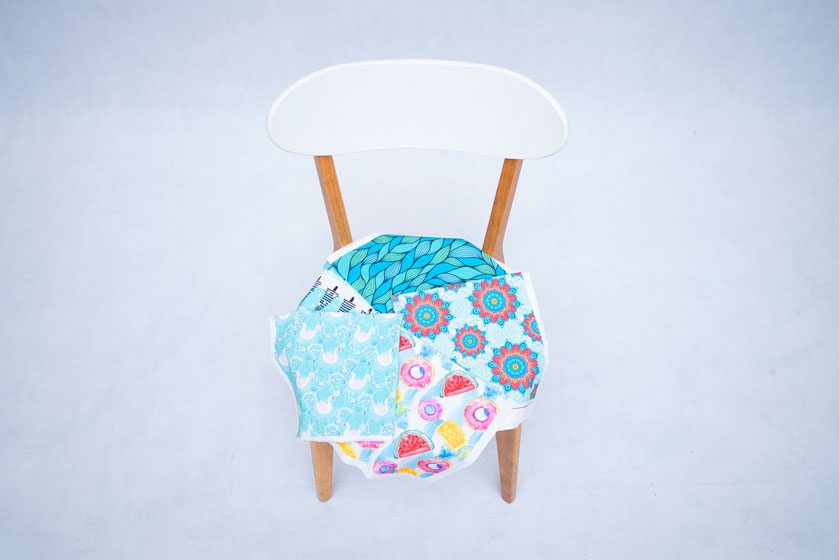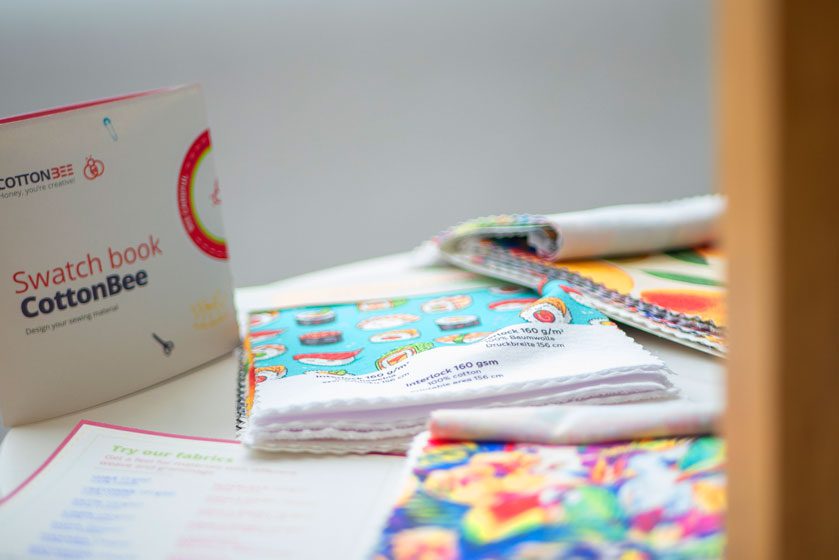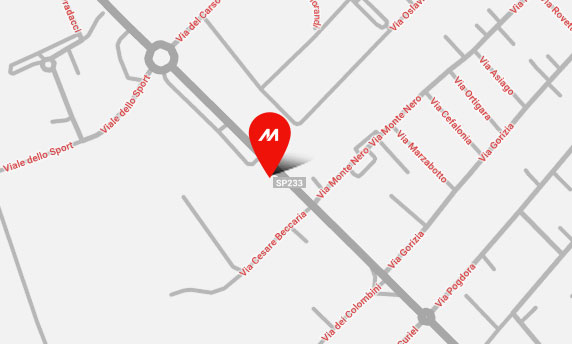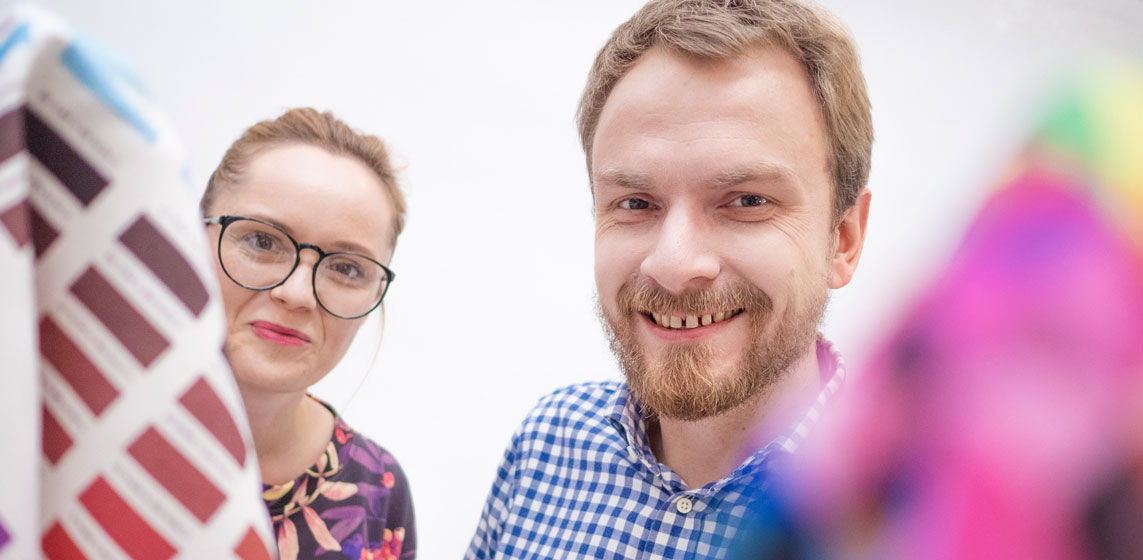
Mimaki innovation keeps CottonBee returning as capacity and capability requirements increase
When espoused entrepreneurs Michał and Ania Laskowski set upon a new venture to create a textile business serving the Polish craft community, they had little experience in the business of textiles and printing but possessed vital expertise in ecommerce and an astute vision.
CottonBee founder, Ania, inspired the business when she observed there were no good resources for buying contemporary fabrics in Poland for her sewing hobby; overseas websites were the only option and ordering processes proved difficult. From this spark of an idea, Ania and today’s CEO Michał founded CottonBee in 2014. The vision was to sell ultra-short-run textiles – averaging just one metre in length – direct to consumers.
Five years on and CottonBee has transformed from a side hustle for these entrepreneurs to an established business that goes from strength to strength. Still engaged in small volume printing, the business today has 15 employees and has shipped over 28,000 orders to hobbyists and small businesses throughout Europe. From the outset it was obvious digital production was a must for the business as short run-lengths were essential. Recognising that their own knowledge of print was limited, Ania and Michał worked with local vendors to find a technology that would be simple to operate, whilst providing the vibrant fabric prints and fast turnarounds needed – at the right price.
“Mimaki was the first and only choice for us. We were a start-up business with a limited budget and didn’t need a huge amount of capacity to start with. However, we had strict criteria with regards to the print quality, turnaround times and we needed equipment that was easy to operate,” Michał explains. “The Mimaki Tx400 series was the only option at that time which delivered on all our requirements. Our only other alternative was a rebuild and we didn’t want the risk. We also felt Mimaki was a trustworthy brand and working with a company like that would mean continual investment in the technology and excellent customer service.”
CottonBee worked closely with local Polish distributor Teba, who proved to be an excellent partner. “We recognised Teba’s expertise in engineering, printing and textiles very quickly and it was exactly the partner we needed at that time to take us through product selection, installation and work with us through a steep learning curve.”
Teba, a Mimaki Authorised Partner, supported CottonBee with the installation of the first Mimaki Tx400 printer in Poland. A highly productive direct-to-textile printer, it offered exceptional speed and superior print quality on an entry-level system. In addition, it was an eco-friendly alternative to other processes. Using only cotton fabrics and pigment inks, CottonBee kept post-processing to a minimum to achieve fast turnarounds.
A little later Mimaki launched its TP400 pigment inks and according to Michał “Everything improved, but especially dry and wet colour fastness and the vividness of colour. The quality compared very nicely even against large-scale industrial printers.” It was a welcome development for CottonBee’s remarkably tough customer-base, as Michał put it: “Consumers want a good price, good quality, good turnaround times: they’re super demanding. In fact, our single metre customers have the most exacting requirements!”
Having established the CottonBee business, Michał and Ania ramped up their approach after 18 months, expanding their target market to include small-scale businesses as well as consumers. Excelling in its niche, CottonBee continued to focus on small runs, attracting many small-scale ‘hobbyist’ businesses.
The timing was fortuitous when Mimaki later launched its Tx300P-1800 series and CottonBee was looking for more capacity as it once again looked to scale-up the business, this time venturing into new territories. “CottonBee just became too big for Poland alone!” enthuses Michał. “It was clear that to keep the business thriving we needed to expand and the next step was to launch the website across Europe. To that end, we were looking to increase our printing capacity when Mimaki launched the Tx300P series and so, of course, we were delighted to continue our partnership with Mimaki and Teba.”
CottonBee invested in the Mimaki Tx300P-1800 direct-to-textile printer and the Tx300P-1800B with a sticky belt for printing on thin and stretchable fabrics. Effortlessly combining quality and high speed, the Tx300P-1800 series reflects Mimaki’s undisputed expertise in the digital textile sector.
“Mimaki was one of the first to introduce the sticky belt for smaller printers. It requires a more skilled operator as each fabric requires a special approach, but we quickly incorporated that expertise into our team and it allowed us to increase our range of cotton fabrics, which our customers loved,” says Ania. The two printers significantly increased capacity for CottonBee and by using two printers from the same series, with the same printheads, customers could make repeat orders and get exactly the same result, whichever printer the job was allocated to.
“Today we continue to use the Mimaki Tx300P-1800 printers and our overseas sales now make up the biggest proportion of our business, so all of our Mimaki investments have been a resounding success, and we continue to grow. Customers still want even faster turnaround times, so that’s our current goal. We offer shipment of five days from ordering, but we’re working towards two days. This is what fills our days; what started as a side occupation for us, is a business that just continues to flourish,” enthuses Michał.
Teba owner Jacek Teodorczyk adds, “With our 25 years in the industry, we delight in seeing businesses like CottonBee start on a small scale and thrive. It’s been an absolute joy to accompany them on the journey, and long may it continue!”

